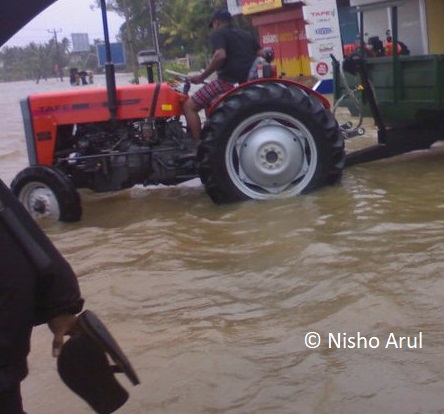How mutual aid networks are powering Sudan’s humanitarian response
- September 19, 2023
- Posted by: Innovative Aid Strategy & Consulting
- Categories: Funding trends, Humanitarian, International, International Development

From The New Humanitarian, published on September 2023
View Original
GENEVA
Our editors’ weekly take on humanitarian news, trends, and developments from around the globe.
On our radar
A staggering death toll, shock, and anger after Libya floods
The death toll from catastrophic flooding in northeast Libya continues to climb, with reported numbers now ranging from 5,000 to as high as 11,300 – and thousands still unaccounted for. People across Libya have stepped up to help, sending convoys of aid across the politically divided country and opening their homes to strangers. Meanwhile, anger is spreading about why two dams in the port city of Derna – which collapsed under the weight of flooding, leading to the destruction of entire neighbourhoods – were allowed to decay. There have also been accusations that authorities ignored warnings about the severity of the storm, contributing to the skyrocketing death toll. International aid requests and pledges have begun to pour in, along with initial shipments. But finding and burying bodies is still a top priority, according to a doctor at the largest hospital in Benghazi, an eastern city where many people have taken shelter. “Everyone is still in shock; we still haven’t had time to process our emotions,” Dr Nabil ElTarhuni told us.
Devastation, questions about response follow Morocco earthquake
The critical 72-hour window for finding survivors has passed in Morocco after a deadly earthquake struck on 8 September near Marrakech, though there have been some rescues since. The 6.8 magnitude quake has killed nearly 3,000 people, mainly in remote villages in rural, mountainous regions that are difficult for first responders to access. Rescue teams from Qatar, the UK, Spain, and the UAE are assisting Moroccan authorities, slowly transporting essential supplies, like food and tents, across difficult terrain and roads blocked by rubble. The Moroccan government has come under criticism for not initially authorising teams from other countries to join the relief effort. The government said its selective invitations are aimed at avoiding a poorly coordinated response and do not amount to rejections of support from other countries that have offered help. Rebuilding efforts pose a significant challenge to Morocco, which was already grappling with economic difficulties and drought before this disaster.
Fresh layoffs affect ICRC’s global headquarters
The International Committee of the Red Cross will cut 270 more jobs, on top of at least 1,800 announced earlier this year, as the organisation’s budget crunch stretches into 2024. The cuts were announced on 11 September and will affect about 20% of the Red Cross’s 1,400-person workforce at its Geneva headquarters. The previous round of layoffs affected ICRC’s worldwide staff of some 20,000 employees. The organisation has slashed its budget by a quarter in a matter of months. It launched its largest-ever budget of CHF 2.8 billion ($3.1 billion) in January, only to shrink it a few weeks later, citing extensive funding shortfalls. Its budget for next year is forecast at CHF 2.1 billion ($2.3 Billion). “ICRC delegations will face less capacity to assist those in need,” the organisation said in its news release. Internally, the budget woes have sparked accusations of fiscal mismanagement in some corners and debates over the ICRC’s role and scope after years of expansion. Broadly, humanitarian donor funding continues to rise each year – but not enough to keep pace with what aid groups say are the rising costs of responding to crises.
For more information, please visit : thenewhumanitarian.org
Leave a Reply Cancel reply
Looking for help with your humanitarian or development innovative actions? Or maybe you’re interested in full training services. Whatever you need, we’re here to help you.
